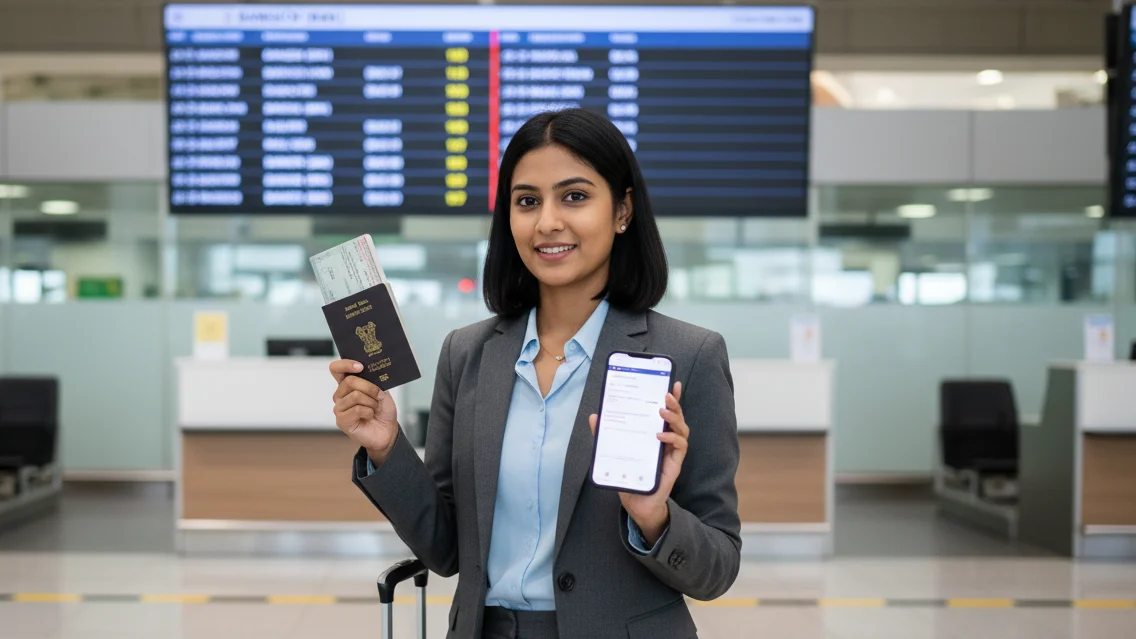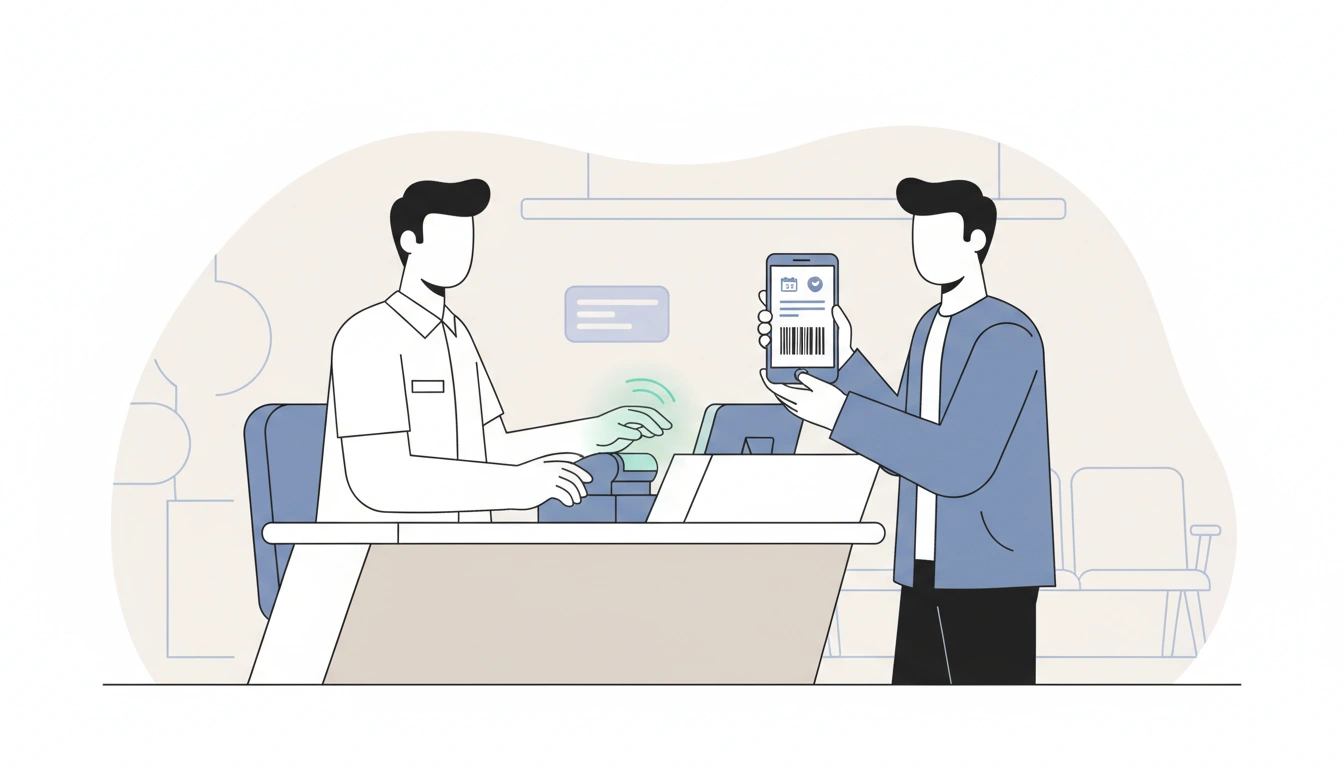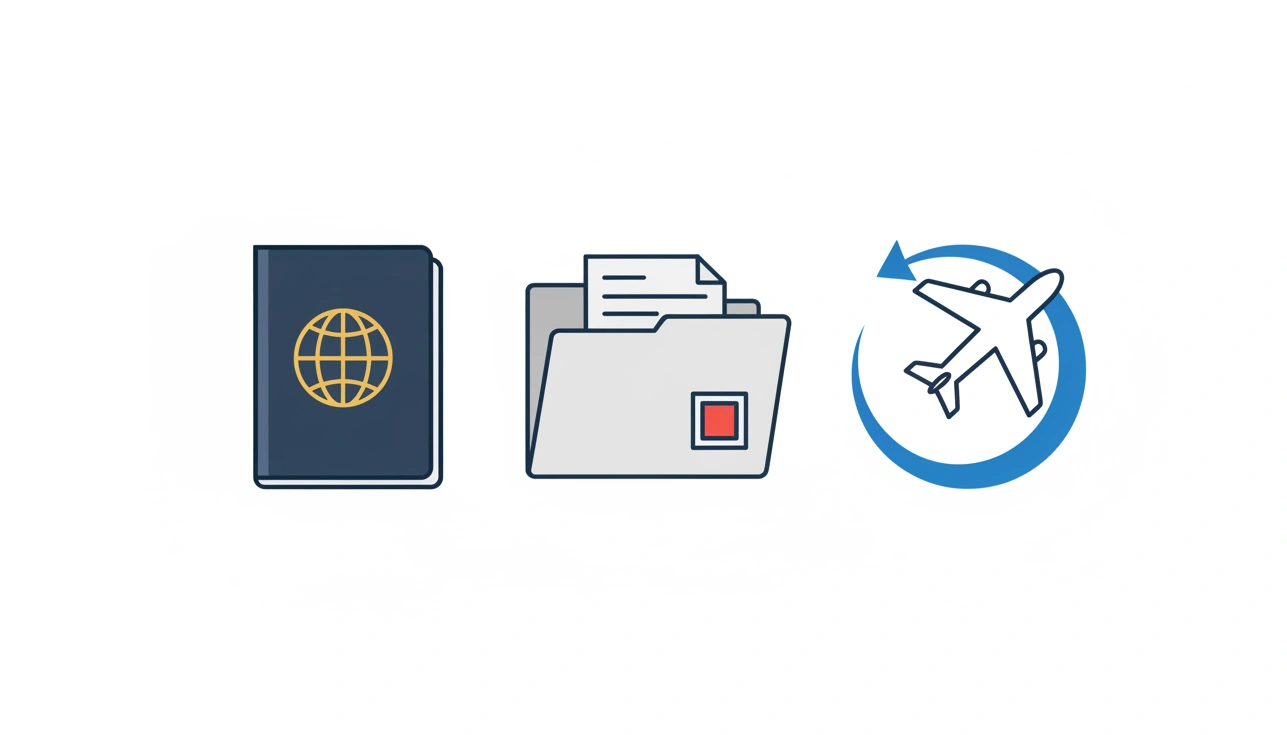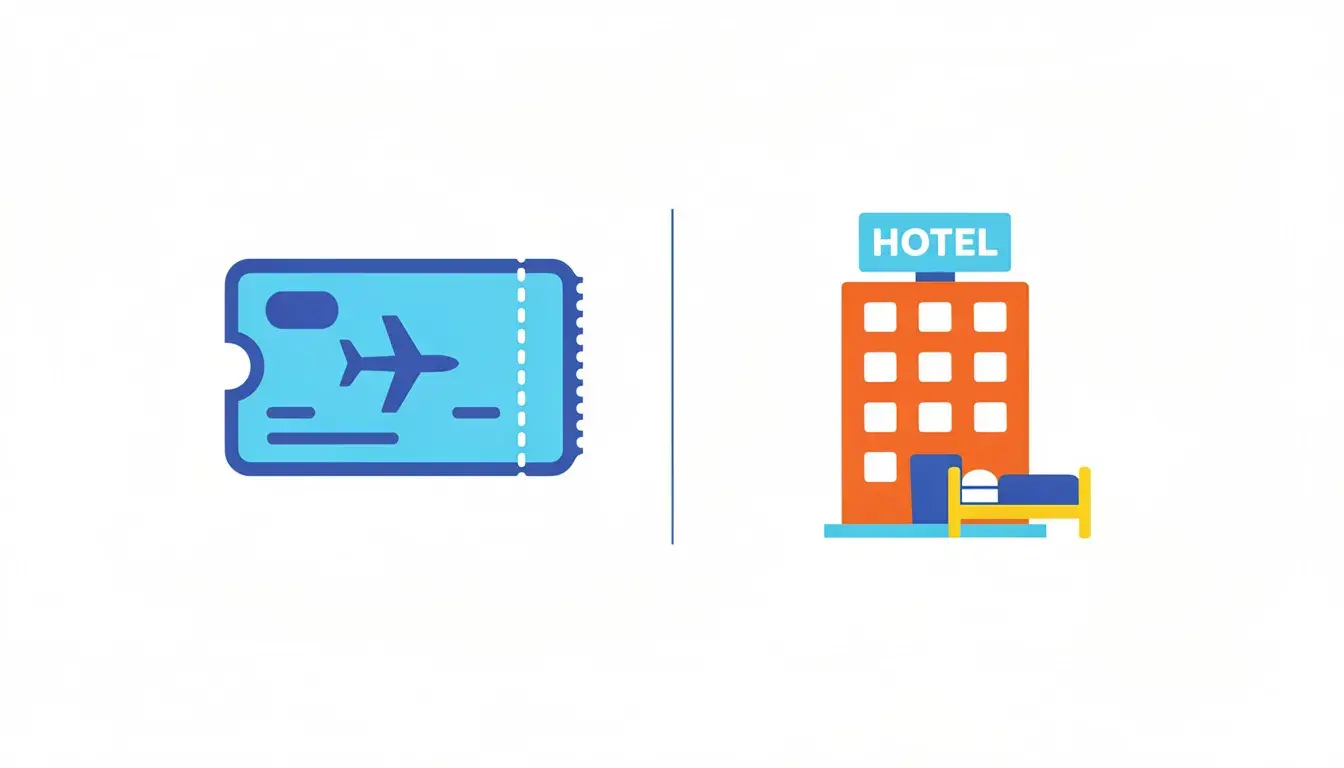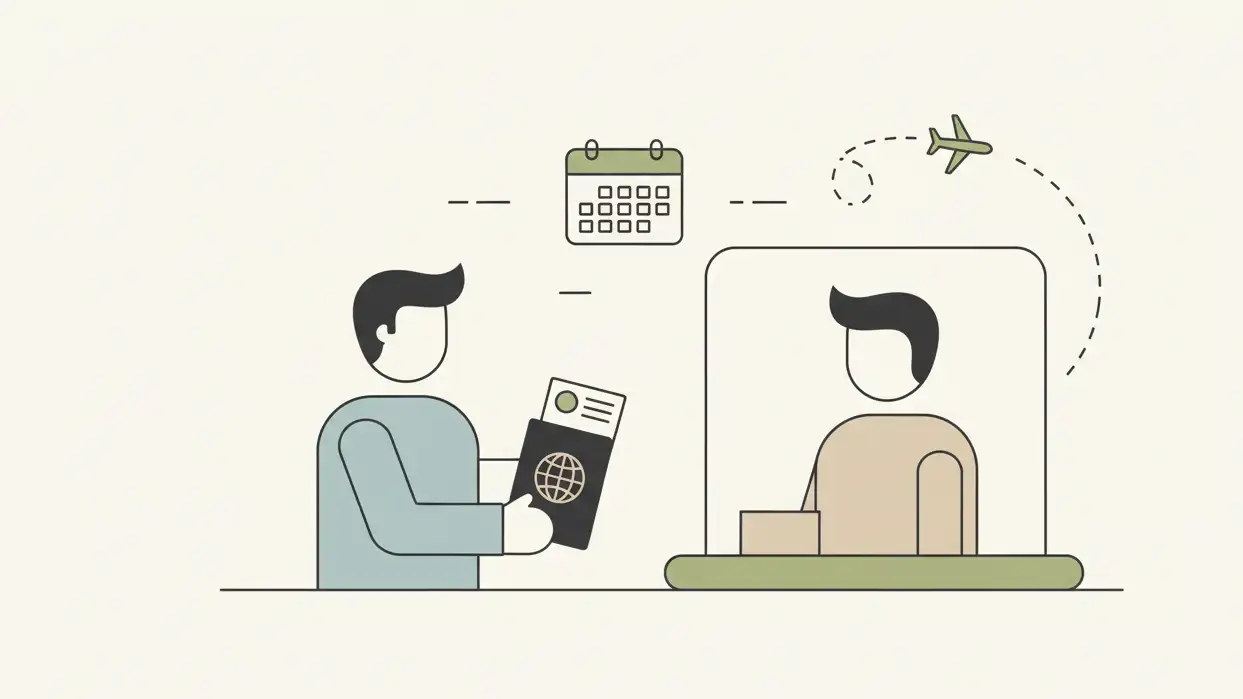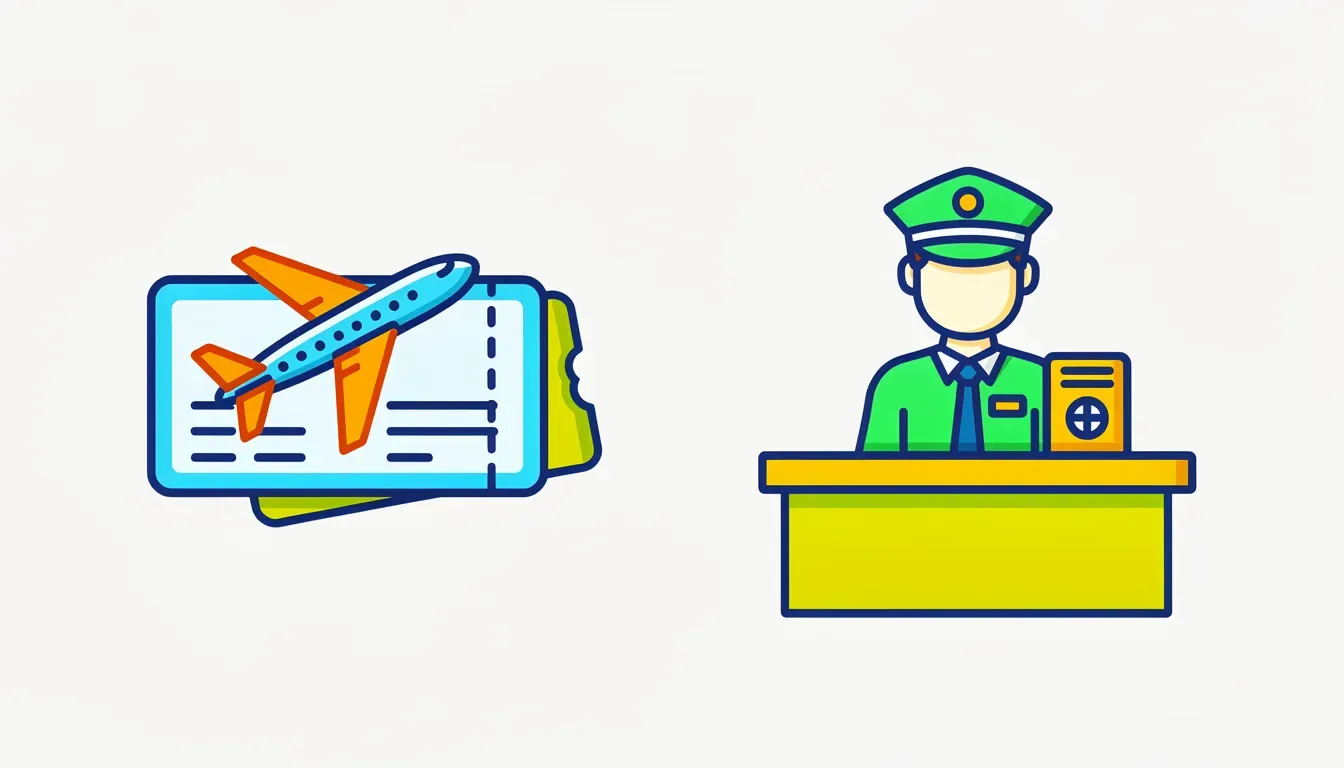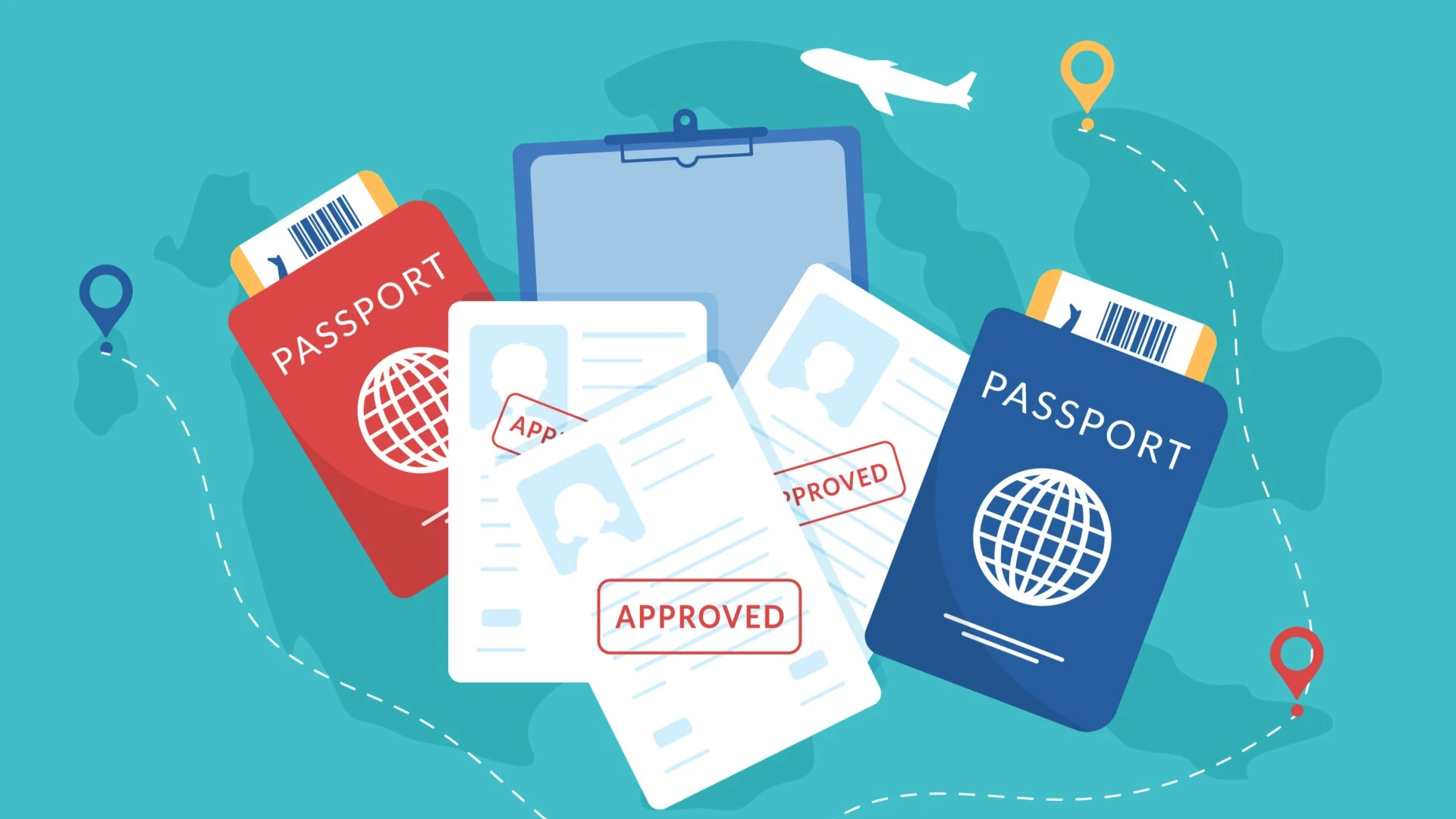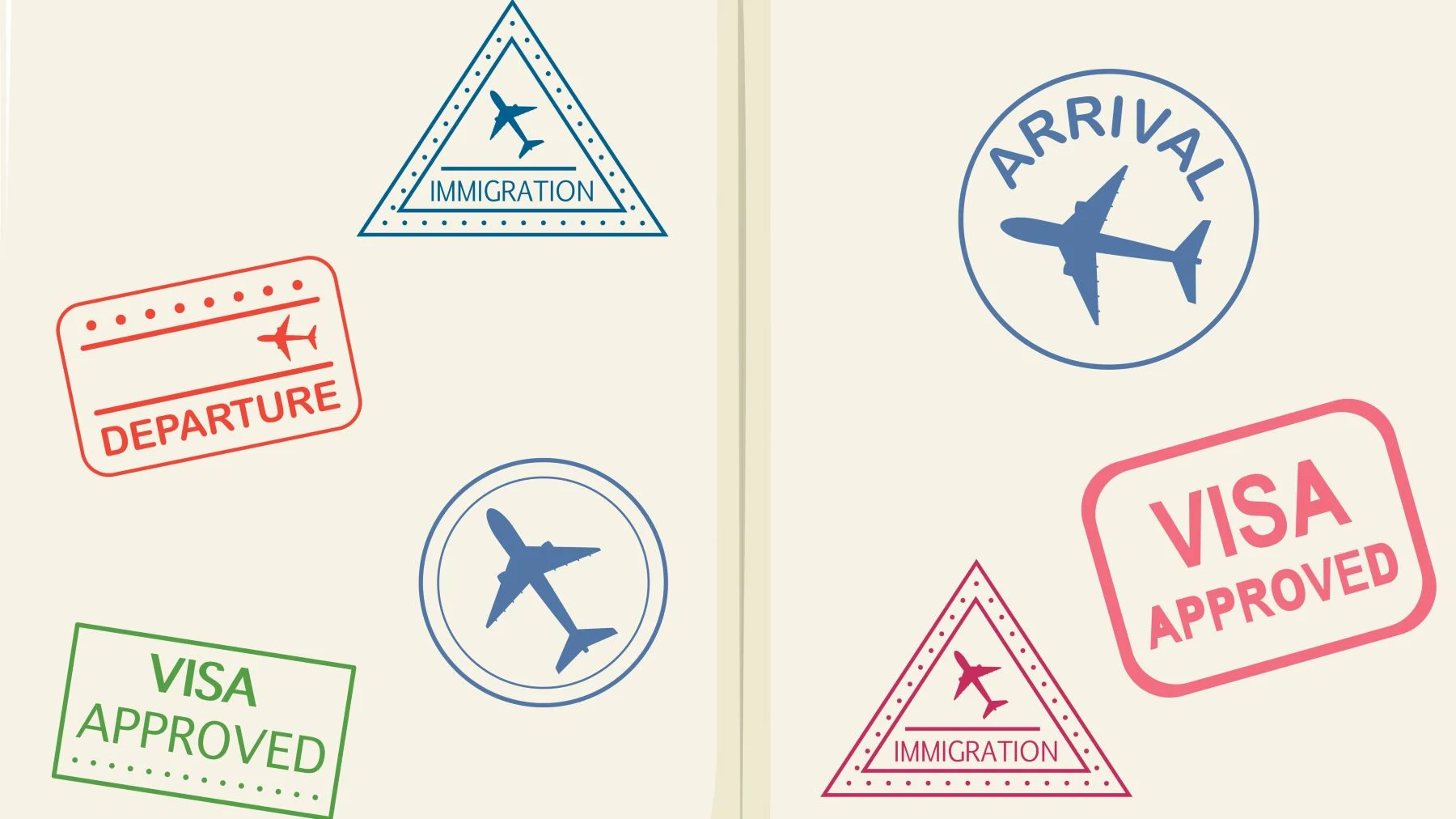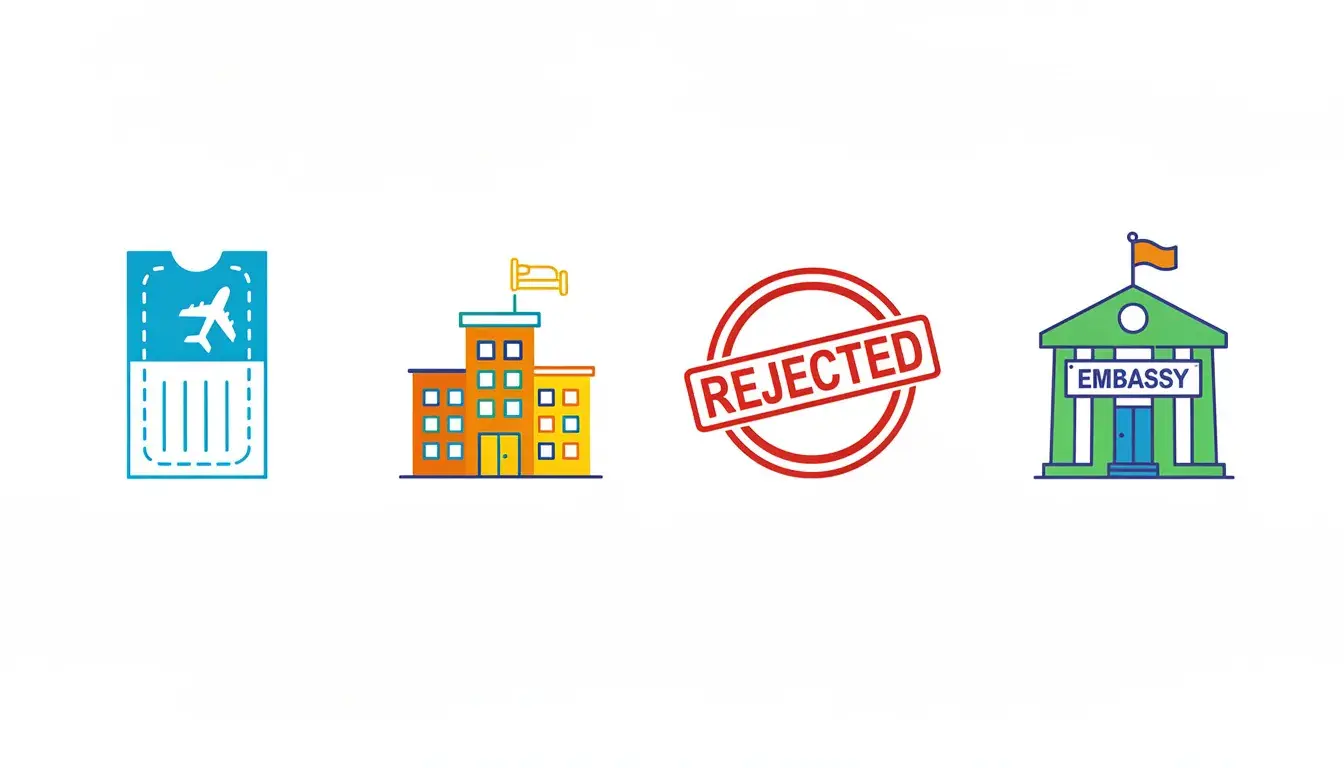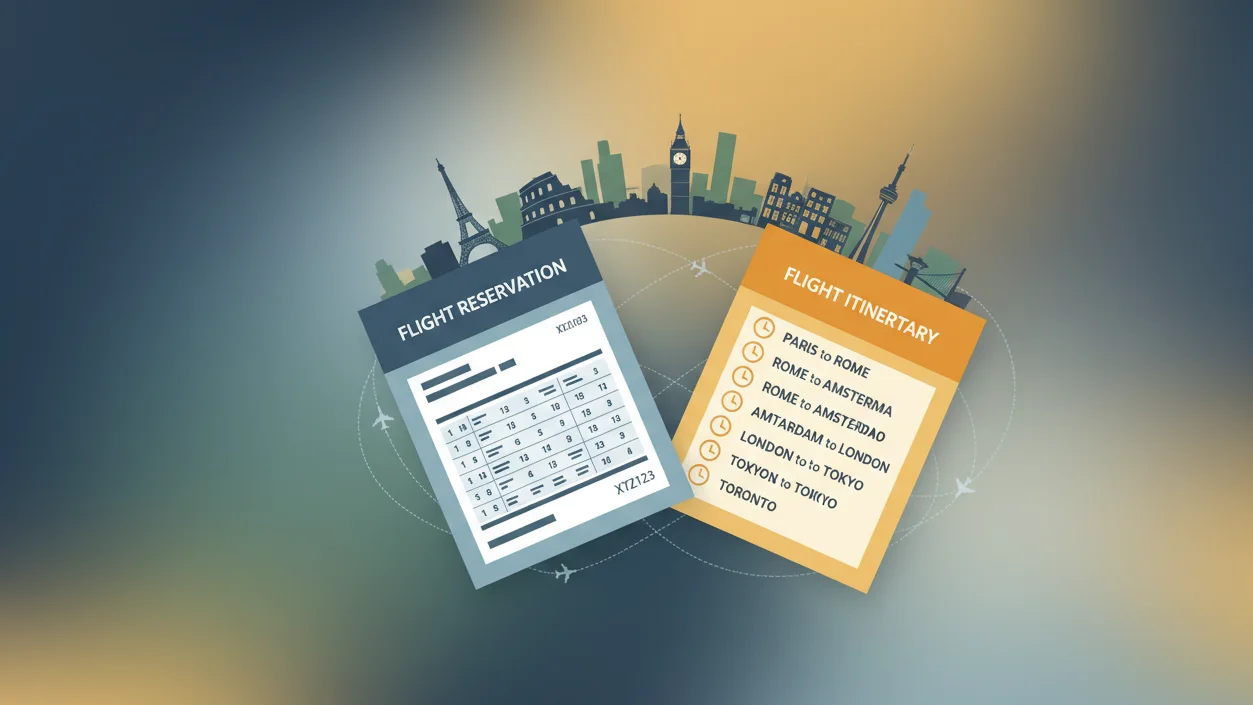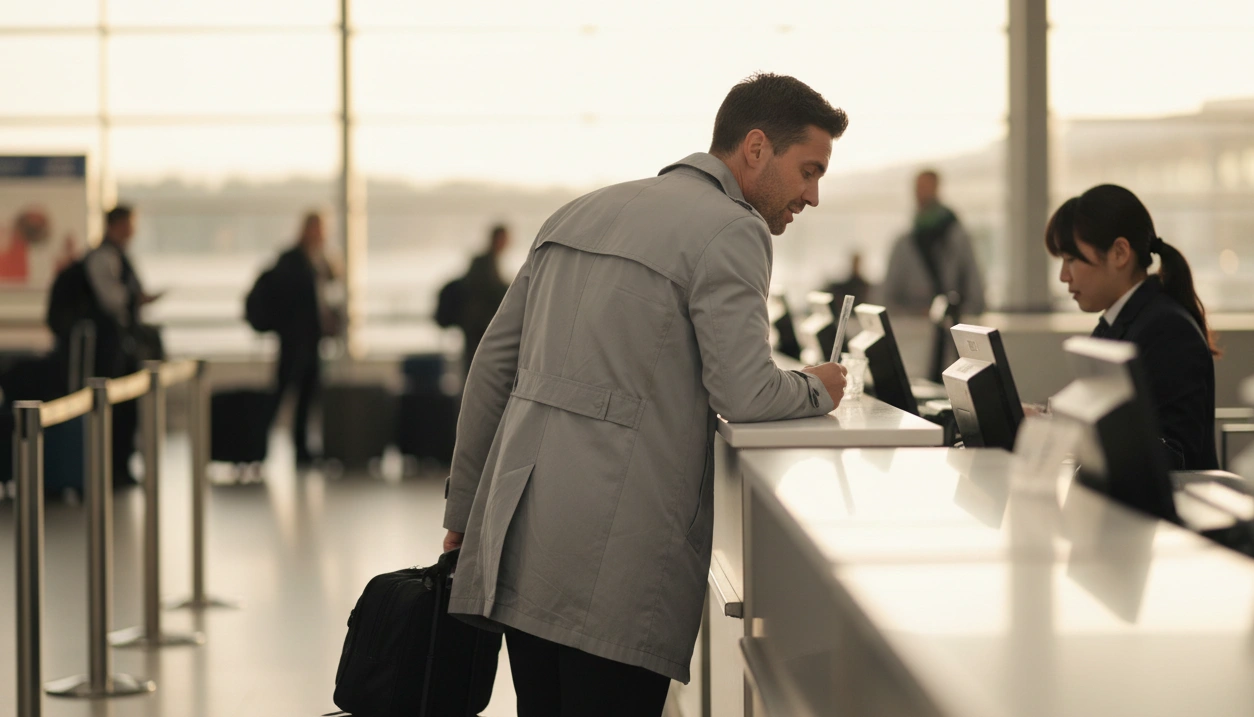Thailand Work Visa Requirements: Do You Need a Confirmed Itinerary?
You are ready to take a job opportunity in Thailand, your documents are lined up, your employer is waiting, and then the big question hits you at the visa stage: Do you really need to show a fully booked flight? Many Indian applicants get stuck right here, worried about paying for expensive tickets before they even know if the visa will be approved. A dummy ticket can provide the proof of onward travel without the risk, allowing you to submit a verifiable itinerary that aligns with your job start date.
In this guide, we talk through that exact dilemma. We break down when Thai embassies and consulates actually ask for a confirmed itinerary, when a tentative booking is enough, and when no ticket is needed at all, especially for in-country changes of status. For more insights on visa preparation, check our FAQ or explore our blogs for tips from experienced travelers.
By the end, you will know how to plan your flights in a way that keeps visa officers satisfied and your money safe. If your timeline shifts, you can book a dummy ticket again with updated dates instead of paying change fees to airlines. Learn more about our team's expertise on our About Us page.
flight itinerary for Thailand work visa is one of the most useful documents travelers prepare when organizing international trips. While most countries do not ask you to buy a fully paid ticket upfront, they do expect a verifiable proof of travel intent that clearly shows your entry and exit plan. This helps demonstrate that you will follow your schedule and return on time.
Using a professionally issued and verifiable flight itinerary for Thailand work visa is the safest and most convenient way to satisfy this requirement without financial risk, especially for visa applications and immigration preparations.
Last updated: November 2025 — verified against the latest traveler documentation practices and global consular guidelines.
Table of Contents
Do You Really Need A Confirmed Flight For A Thailand Work Visa?
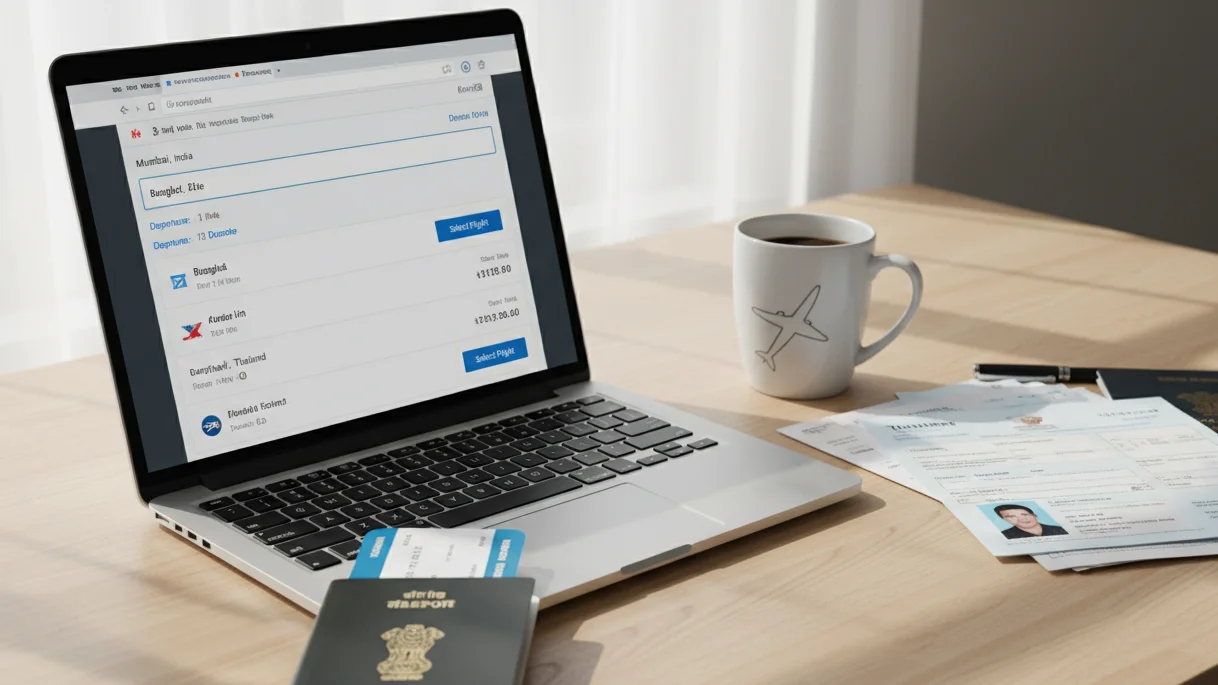
Before you spend a big chunk of money on a ticket to Bangkok, it helps to know what Thai visa officers actually want to see. For Indian applicants, the rules on flight itineraries are not as black and white as they look on a checklist.
You will see phrases like “air ticket” or “travel itinerary” on embassy websites, but that does not always mean a fully paid, non-refundable return ticket is compulsory for a work visa. Let us break it down in a way that fits how you are likely to apply it in real life. Align your job offer dates and travel plans using a flexible dummy ticket booking that you can update anytime. For broader visa strategies, visit IATA for global travel guidelines.
How Thailand Work Visa Journeys Usually Look For Indians
Most Indian professionals heading to Thailand for work follow one of a few typical paths. The visa route you use affects how important a flight itinerary becomes.
Common scenarios include:
- Applying for a Non-Immigrant B (employment) visa at a Thai embassy or consulate in India.
- Applying at a Thai mission in a third country if your employer prefers that route.
- Entering Thailand and then doing a change of status or extension once you are already in the country.
In each case, the officer wants to answer some basic questions in their mind. When will you land in Thailand? How long do you plan to stay? Does that timeline match your job contract and employer paperwork? The flight plan is simply one tool they use to check that everything lines up.
Embassy Counters In India: What They Actually Expect To See
When you apply at Thai embassies or consulates serving Indian residents, you will usually see a travel-related line in the document checklist. It might say something like “air ticket,” “confirmed ticket,” or “travel itinerary.”
In practice, what they actually look for can be more flexible than the wording suggests:
- Some officers are happy with a tentative booking that shows realistic dates and flight numbers.
- Others may just want a printout of your planned flight from an airline website or travel portal.
- A few might ask specifically for a confirmed booking, especially if they suspect past misuse or if your travel history is complicated.
The key point is that many Indian applicants successfully submit work visa applications with a sensible, verifiable itinerary instead of locking money into a non-refundable round-trip ticket. The embassy cares more about whether your travel plan makes sense for your role than whether you have fully paid for the ticket.
Online Portals And VFS: Itinerary Upload Vs Simple Travel Plan
If you submit through VFS or an online system, you may notice that the portal asks you to upload supporting documents. One of the fields is often “flight booking” or “travel itinerary.”
Here again, there are usually two layers:
- In the online form, you mention your intended date of arrival, possibly your flight number.
- In the document upload section, you can add a PDF of your booking or itinerary if they request it.
For a long-term work stay, it is quite normal to show a one-way itinerary into Thailand, even if the old text on the website still talks about “round-trip.” Your goal is to show the officer that your arrival date fits with:
- Your joining date is in the offer letter.
- The validity period of the visa you are applying for.
- Reasonable time for relocation, accommodation, and settling in.
As long as these elements line up, the itinerary usually plays a supporting role rather than becoming a strict hurdle.
Inside Thailand: When You Change Status, Do Flights Still Matter
Some Indians reach Thailand first, often on another Non-Immigrant visa or after an initial company-related entry, and then their status is changed to a work-related Non-Immigrant B or extended inside the country.
In these in-country applications, your physical presence in Thailand is already established. At that point, immigration officers are less interested in how you got there and more interested in:
- Whether your work permit is valid or in process.
- Whether your employer has provided complete company documents.
- Whether you are complying with local reporting and extension rules.
In such cases, a fresh flight itinerary is usually irrelevant unless there is a specific reason, such as a short temporary stay that needs proof of onward travel.
Why Visa Officers Still Care About Your Travel Dates
Even when a confirmed ticket is not strictly mandatory, having a clear travel plan helps you. A clean, logical itinerary:
- Shows your intended entry date so the officer can see how it aligns with your job start date.
- Helps the officer judge whether your planned duration fits your role and visa category.
- Signals that you are organised and genuinely focused on legal, long-term work in Thailand, not a random extended stay.
For you, as an Indian applicant, the best mindset is simple. Treat the flight itinerary as a supporting proof of your story, not as a purchase you must rush into. The more your flights, forms, and job documents tell the same story, the smoother your Thailand work visa journey usually becomes.
What Thai Embassies Say Vs What Actually Happens During Work Visa Screening
If you have ever compared the official Thai embassy checklist with what people actually submit, you already know the two don't always match perfectly. The rules look strict on paper, but officers often take a more practical approach when assessing work visas for Indian applicants. You just need to understand how they interpret the documents you give them and what they are really trying to confirm when they see your flight plan.
Let us walk through the gap between stated requirements and real-life expectations so you know exactly how much weight your itinerary carries. When you just need proof of travel for your appointment, book a dummy ticket and avoid locking money into non-refundable fares.
The Checklist Sounds Final, But There Is More To The Story
Every Thai mission releases a list of required documents for Non-Immigrant B applications. The wording can differ depending on where you apply. For example, the New Delhi embassy might phrase it one way, Mumbai another, and Chennai yet another.
On these lists, you may see terms like:
- Air ticket
- Confirmed flight
- Travel itinerary
- Proof of onward travel
- Confirmation of travel arrangements
At first glance, it feels like you must purchase a confirmed flight before applying. But the reality is more flexible. For work visas, officers care far more about your employer’s paperwork and your personal eligibility than whether you have paid for a ticket. Your itinerary simply helps them understand your timeline.
How Officers Use Their Discretion When Reviewing Your Application
Thai visa officers are trained to evaluate the complete picture. When your company paperwork is strong, your qualifications match the role, and your application is clean, they rarely insist on a fully paid ticket.
Most officers quietly ask themselves a few simple questions:
- Do your travel dates fit your job contract?
- Is your entry date realistic for the processing timeline?
- Does your itinerary show a clear plan, not confusion?
If those answers line up, a tentative booking or verifiable reservation is usually accepted. Officers only push for a final ticket when:
- Your case has inconsistencies.
- Your timeline makes no sense.
- They want additional reassurance due to past travel issues.
For most Indian applicants with clean documentation, a reasonable itinerary works just fine.
The Round-Trip vs One-Way Confusion And What Indians Should Know
This is where most people get stuck. Checklists often mention “round-trip” flights, which makes sense for tourists, not workers relocating for long-term employment.
If you are applying for a Non-Immigrant B for employment, a round-trip flight is not the natural choice. Most Indians submit a one-way itinerary to Thailand because:
- They expect to stay long-term.
- Their company will handle extensions and renewals.
- Their return date depends on contract length and work permit status.
Embassies understand this. Even when the website hasn't been updated, officers interpret the rule based on the purpose of your travel. If you are applying for a work visa, a one-way entry itinerary that aligns with your job start date makes perfect sense.
How Your Itinerary Supports The Other Documents You Submit
Think of your itinerary as the timeline that stitches your whole application together. When officers see dates that match the narrative of your file, your chances improve automatically.
Your itinerary helps reinforce:
- Your start date from the job offer.
- Your arrival timeline should not be unrealistically early or late.
- Your employer’s expected onboarding period.
When the dates across your contract, sponsorship letter, and itinerary fit smoothly, the visa officer feels more confident about your case. If you mismatch these dates—for example, showing arrival two months before onboarding—you raise unnecessary questions.
Situations Where Your Travel Plan Raises A Red Flag
Officers are polite, but they pay close attention to inconsistencies. Your flight details may trigger concern if they notice:
- Arrival after your employment start date.
- A route that makes no sense (multiple detours, suspicious transit points).
- A return date that contradicts a full-time employment contract.
- A booking that looks unrealistic compared to your financial documents.
- A travel plan that conflicts with your employment narrative.
These may not lead to outright rejection, but they slow down the process by creating room for follow-up questions or document requests.
What Indian Applicants Commonly Do (And What Actually Works)
Most Indian professionals use a simple and effective method:
- They prepare a logical one-way itinerary.
- They choose arrival dates that give them breathing room before joining.
- They avoid last-minute bookings that look rushed.
- They avoid unrealistic tourism-style detours.
As long as the itinerary feels genuine and aligns with the rest of your application, Thai missions generally accept it.
The Real Essence Of Flight Requirements For Work Visas
The key takeaway is simple. Thai officers are not trying to force you into buying a costly, non-refundable ticket before your visa is approved. They are checking your intent and timeline. They want to see that you have a clear, genuine plan that fits your job and matches your documents.
Once you understand that, the stress around flight requirements disappears. You focus on presenting a clean, organized application with a travel plan that tells a credible story, and the rest usually falls into place.
👉 Order your dummy ticket today to secure your application without upfront costs.
Understanding Thailand Work Visas And The Documents That Actually Matter

When you look beyond the flight itinerary, your visa approval depends on how strong your core paperwork is. Thai officers put far more weight on employer documents, your professional background, and your ability to stay in Thailand legally for the purpose of work. This section walks you through the essentials so you know exactly what counts and what each piece of paperwork signals to the officer reviewing your file.
Before diving into the breakdown, remember one thing. A clean, well-organised file helps the officer understand who you are, what job you are entering for, and how your employer plans to support you once you arrive. That clarity matters far more than the ticket itself. Keep your Thailand work visa file clean and professional with a verified dummy ticket booking that matches your planned travel dates.
The Main Work Visa Route Indians Use And How It’s Assessed
Most Indian applicants apply for a non-immigrant B visa when moving to Thailand for employment. This is different from a tourist visa or business visa, because the non-immigrant category is designed for foreign nationals entering the country to work, teach, consult, or conduct business activities.
You may submit your file at a Royal Thai Embassy, a Thai Embassy, or a Royal Thai Consulate General, depending on your location. Some applicants even apply through an embassy, consulate, or consulate general in a neighbouring country if their employer prefers that approach. Each mission follows guidelines issued by the Ministry of Foreign Affairs, but officers still use judgment when assessing each application form and visa application form.
The key is showing that your arrival benefits Thailand, that the employer genuinely needs a foreign employee, and that you intend to stay in Thailand for legal employment only.
Employer Documents Carry Serious Weight
Your employer’s paperwork is usually the backbone of your application. Thai authorities want to be sure your role is legitimate and aligned with national rules under the Thai Ministry and the Ministry of Labour. Officers cross-check employer credentials through local systems such as the foreign workers administration and sometimes even the provincial employment office in the respective province where your job is based.
Companies typically submit:
- Business registration records
- Proof of registered capital
- Tax filings, including income tax registration
- Sponsorship letters confirming your role
- Clarification of why a foreign worker is required
These documents required help from Thai authorities to confirm that the employer can support your Thai work permit and follow all Thailand work visa requirements. When the paperwork is complete, officers reviewing your file at the immigration bureau or related government agencies gain confidence in the company’s reliability.
Your Personal Documents Tell The Other Half Of The Story
Your side of the file shows whether you meet professional expectations and can perform your role responsibly. Officers check whether your experience matches the job description and whether you can perform official duties as stated by the employer.
You may need:
- A valid ordinary passport
- Education records approved by the private education commission or the basic education commission, where relevant
- Experience letters showing you have previously worked in similar roles
- A clean background check
- Additional paperwork if you will conduct business, teach, or work in an export business
Sometimes the embassy may request additional documents if they need clarity. This is common with specialised roles, corporate restructuring, or applicants who have changed industries recently.
Connecting The Work Visa To The Thailand Work Permit Process
Your entry visa and your Thailand work permit are closely linked. After arriving, your employer helps you complete formalities with the ministry and labour offices so you can work in Thailand legally. The work permit process verifies your job description, company approval, and your eligibility to be employed as a foreign employee.
Once your permit is approved, you receive a stay permit that extends your ability to remain in Thailand beyond the initial visa period. This may later connect to your re-entry permit, which you need when travelling outside Thailand during employment.
Understanding this relationship is important because it shows the officer that you intend to follow rules, maintain your visa status, and complete the work permit steps after arrival.
Visa Variations And When Special Rules Apply
Your purpose in Thailand determines which rules apply. Some foreigners enter for work, while others arrive to visit family, handle long-term medical treatment, or carry out official duties. These categories require different documents, sometimes reviewed by different units under the foreign affairs or labour systems.
For work-related entry, officers look at your job, your employer’s readiness, and your expected timeline. If your case is linked to government-sponsored projects, the Royal Thai authorities may fast-track certain approvals for those who must perform official duties.
Why Accurate Timelines Matter To Your Visa Officer
Your itinerary is one small part of a larger picture. Officers check whether your arrival fits your employer’s onboarding plan and whether your file supports a smooth transition into the work permit process. They also look at technical entries like visa number, entry validity, and whether the person applying has a clean record.
If your timeline is unclear or contradicts your documents, officers may delay your file or request clarifications using the mission’s contact number or email.
The Role Of Honest Documentation In A Strong Application
Whether you apply at a Royal Thai Consulate General, Thailand Embassy, or regional office, the goal remains the same: show that you are prepared, organised, and ready to follow procedures. If you submit clean paperwork, complete every requirement, and demonstrate how you will stay in Thailand for legitimate employment, approval becomes more likely.
Many applicants worry about tickets and dates, but in reality, the strength of your employer’s paperwork and your own supporting documents carries far more influence in your Thailand visa outcome.
From Job Offer To First Day In Thailand: How Your Work Visa And Flight Plans Fit Together
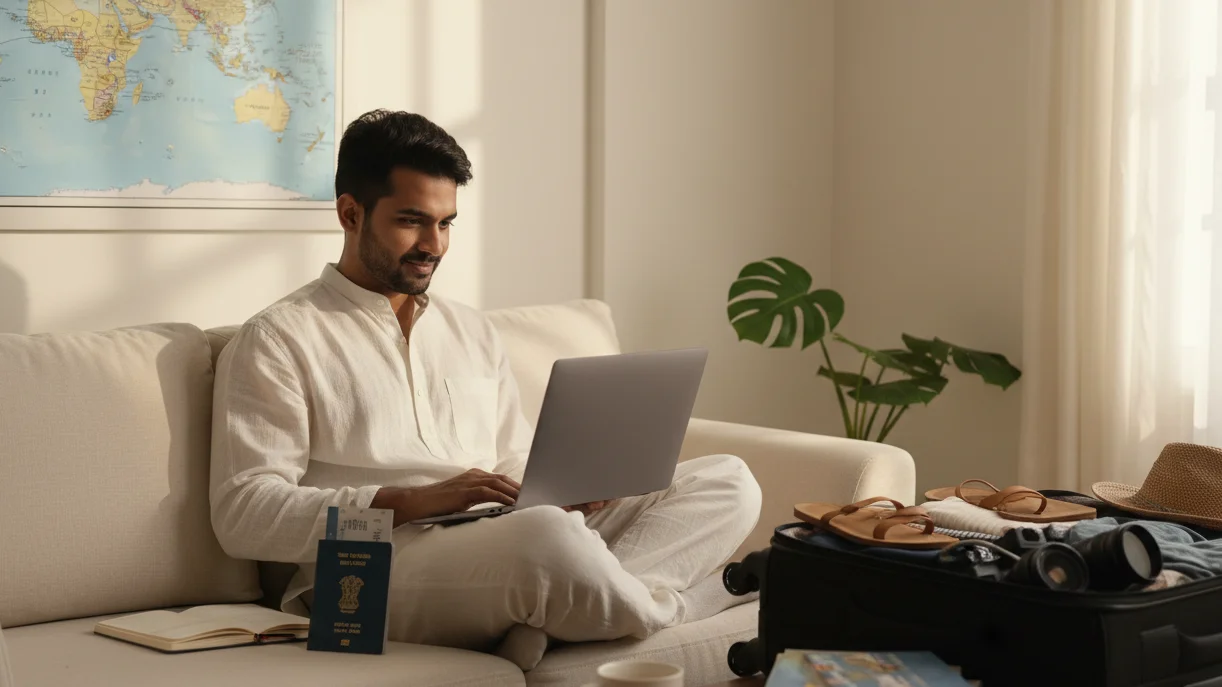
Once your job offer is in hand, the real journey begins. Most Indian applicants feel confident about their qualifications and company paperwork, but the timeline still feels confusing. When do you plan flights? When do you apply for the visa? When does the work permit come into the picture?
A Thailand work visa becomes much easier when you understand the full sequence. Every step connects to the next, and your travel dates only make sense when you place them in the right spot in this chain. If your embassy wants a flight reservation but you do not want to risk real tickets yet, simply book a dummy ticket instead.
Step 1: Start With A Realistic Joining Date And Employer Coordination
Your future employer sets the tone for the entire process. Most companies in Thailand already understand the visa requirements for foreign professionals, but they still expect you to coordinate documents quickly.
A practical timeline starts with three things.
First, your employer confirms your job role and expected start date.
Second, they begin preparing corporate paperwork, sponsorship letters, and internal approvals.
Third, you start gathering your educational and professional documents that will be included in your visa file.
During this stage, avoid booking any flights. You may feel tempted to lock in a good fare, but things can shift rapidly depending on:
- the employer’s internal approval timeline
- How fast can they prepare the required documentation
- How busy the embassy or VFS centre is
A joining date should be realistic, not rushed. Give yourself enough room to complete the visa, arrange accommodation, and prepare for relocation without stress.
Step 2: Organise Your Documents And Build A Clean Visa File
Once the employer finalises their paperwork, your side of the preparation starts. Indian applicants typically gather:
- academic degrees
- professional experience letters
- updated CV
- police clearance certificate if requested
- medical certificate if required
- financial statements in select cases
This is also the moment you begin shaping your travel timeline. Officers want to see an arrival plan that matches your job start date. For example, if your employer expects you to join on the 15th of the month, arriving on the 13th or 14th looks logical. Arriving a month early or a week late does not.
Your file should show three things clearly:
- Why are you qualified for the role
- When you plan to enter Thailand
- How the timeline aligns with your employer’s expectations
A neat file with all documents arranged properly shows the officer you are serious and prepared.
Step 3: Submit Your Visa Application At The Embassy Or VFS
This is the stage where most Indian applicants start thinking about flight itineraries. Embassies and consulates look at travel plans to understand your intended arrival date. But this does not automatically mean you must purchase a confirmed ticket.
When attending your visa appointment, the important elements are:
- a complete application form
- your employer’s sponsorship documents
- your personal credentials
- a travel plan that matches your joining date
For many applicants, a tentative flight itinerary works. It shows your intended arrival without forcing you to spend money upfront. Whether the mission you visit requests a printed itinerary or a digital one depends on the consulate, but you should have something ready to demonstrate your timeline.
This is also the ideal point to use a verifiable reservation service if you want a travel document that looks professional without committing to a costly ticket. You only need it for submission, not payment.
Step 4: Wait For The Visa Decision And Then Finalise Your Flight
Once your application is submitted, your job is to wait. Processing times vary depending on the mission and the season. Some applicants receive decisions in a week, while others wait longer.
There is a simple rule to follow here.
Do not buy your final ticket until your visa is approved.
Once the visa is granted, check:
- the validity dates
- entry conditions
- Any notes or instructions on the visa sticker or approval document
Now is the time to convert your tentative plan into a confirmed booking. Choose an arrival date that gives you enough time to settle in Thailand before your first day at work. Consider peak travel periods, potential layovers, and transit rules for the countries you pass through.
Step 5: Enter Thailand And Start The Work Permit Process
Your flight only gets you into the country. The real formalities start after you land. Most employers guide new employees through the work permit process, including paperwork, office visits, and administrative steps.
After arrival, you will:
- Meet your employer’s HR team
- Begin your work permit application
- Complete biometrics or other formal checks if required
- Receive instructions on reporting rules and future extensions
Once your work permit is approved, your stay in Thailand becomes more stable. You will later extend your visa, renew your work authorisation, and continue reporting every 90 days as required.
By this stage, flights no longer matter. The officer is now concerned with your compliance inside the country, not your initial itinerary.
Step 6: Avoid Common Flight Mistakes That Slow Down Visa Processing
Many first-time applicants unintentionally complicate their visa by choosing unrealistic travel plans. The most common issues include:
- booking non-refundable tickets too early
- choosing arrival dates that do not match employer letters
- submitting multiple changing itineraries
- buying cheap flights that look suspicious or inconsistent
A balanced approach always works better. Create a sensible plan. Share it with your employer. Submit it with your visa. And only purchase the real ticket after approval.
When you follow this sequence, your entire Thailand work visa journey becomes calm, predictable, and far less expensive.
Smart Flight Planning For A Smooth Thailand Work Visa
You do not always need a fully paid, confirmed round-trip ticket for a Thailand work visa, but you do need a clear and credible travel plan. Visa officers care far more about your employer documents, your eligibility, and whether your dates make sense than about whether you have already spent money on flights. A sensible itinerary supports your story.
Plan your journey in stages. Use a realistic, verifiable itinerary for the visa file. Wait for the decision. Then book your final ticket once you know your visa is approved and your dates are confirmed. If you treat the flight as part of a larger strategy instead of a rushed purchase, your move to Thailand becomes safer, smoother, and far less stressful. Get a visa-ready itinerary in minutes with dummy ticket booking before you confirm your actual flights.
Frequently Asked Questions About Dummy Tickets For Thailand Work Visa
To further clarify how a dummy ticket fits into your Thailand work visa application, here are some common questions from Indian applicants. These insights are based on real experiences and official guidelines, helping you avoid common pitfalls.
What Exactly Is A Dummy Ticket And Is It Legal For Thai Work Visas?
A dummy ticket is a verifiable flight reservation with a real PNR (Passenger Name Record) that proves onward travel without requiring full payment. It is fully legal for Thai work visa applications as long as it shows accurate dates aligning with your job offer. Thai embassies accept these for Non-Immigrant B visas, focusing on intent rather than payment proof. Always use reputable providers to ensure the PNR can be verified if checked.
How Long Is A Dummy Ticket Valid For My Visa Submission?
Most dummy tickets are valid for 24-48 hours from issuance, but premium options offer up to 30 days with unlimited reissues. For Thailand work visas, submit within the validity period and match the dates to your planned arrival (e.g., 1-2 weeks before joining). If processing takes longer, reissue for free to keep it current—far better than airline change fees.
Can I Use A One-Way Dummy Ticket For Thailand Employment Visa?
Yes, one-way dummy tickets are ideal for work visas since they reflect long-term stays. Thai officers prioritize alignment with your employment contract over round-trip requirements, which apply more to tourists. Include a note in your application explaining the one-way nature due to ongoing work commitments for added clarity.
Will Thai Embassies Verify My Dummy Ticket PNR During Screening?
Rarely—verification is uncommon for work visas unless red flags appear. Use services with genuine airline PNRs (e.g., from partners like IndiGo or AirAsia) to ensure it's checkable. Over 90% of applicants report no issues, but always keep the PDF handy for any spot checks at VFS or the embassy.
What If My Job Start Date Changes After Submitting The Dummy Ticket?
Reissue instantly with updated dates—no extra cost from trusted providers. Notify VFS or the embassy via email if needed, attaching the new itinerary. This flexibility prevents rejections and keeps your application on track, especially with employer delays common in Thailand relocations.
These FAQs cover the essentials, but for personalized advice, dive into our blogs.
What Travelers Are Saying
Why Travelers Trust BookForVisa.com
BookForVisa.com has been helping travelers navigate complex visa processes since 2019, specializing exclusively in dummy ticket reservations for applications like the Thailand work visa. We've supported over 50,000 visa applicants with secure, instant PDF deliveries and 24/7 customer support from our dedicated team. As a registered business, BookForVisa.com ensures every reservation is verifiable and compliant, building trust through niche expertise in proof-of-travel documents. Our real support team handles queries personally, never automated responses, so you get reliable guidance every step of the way.

